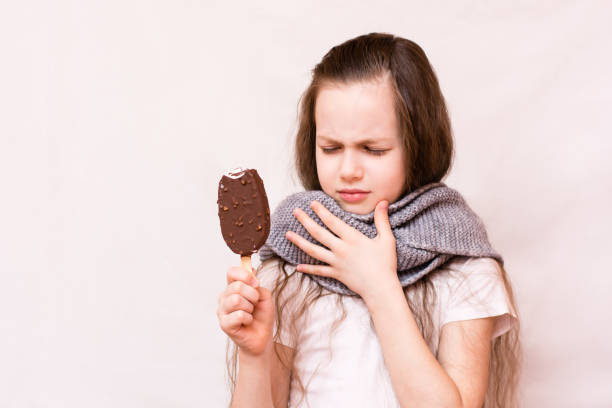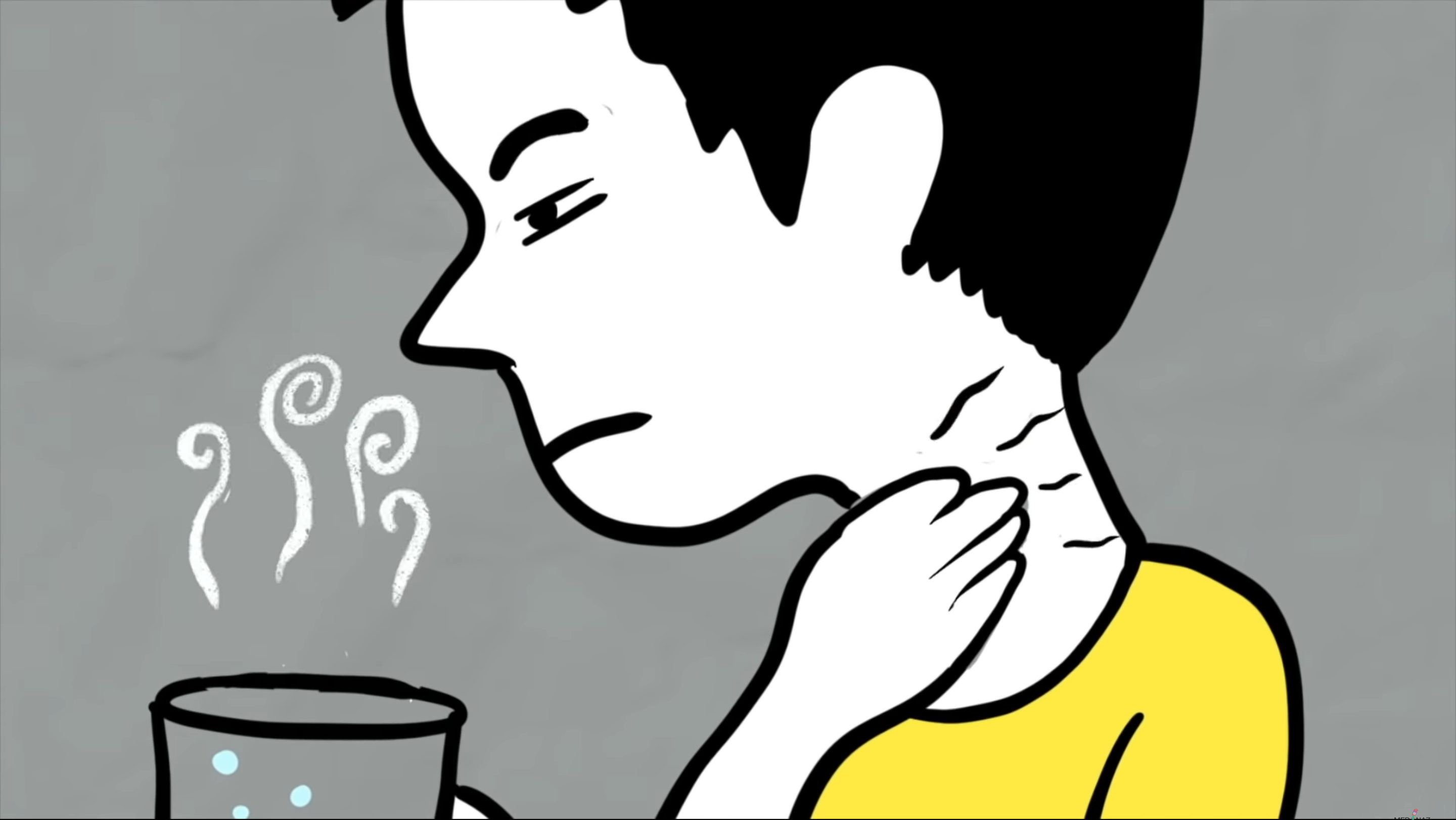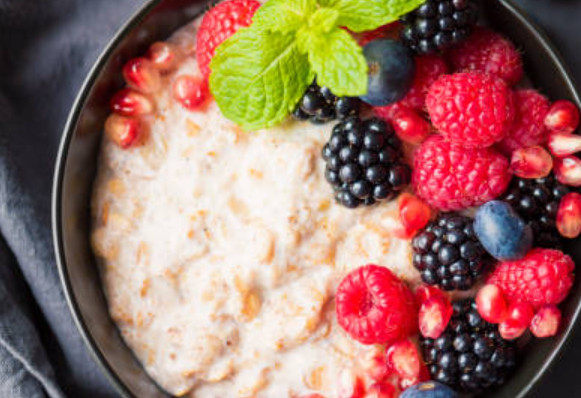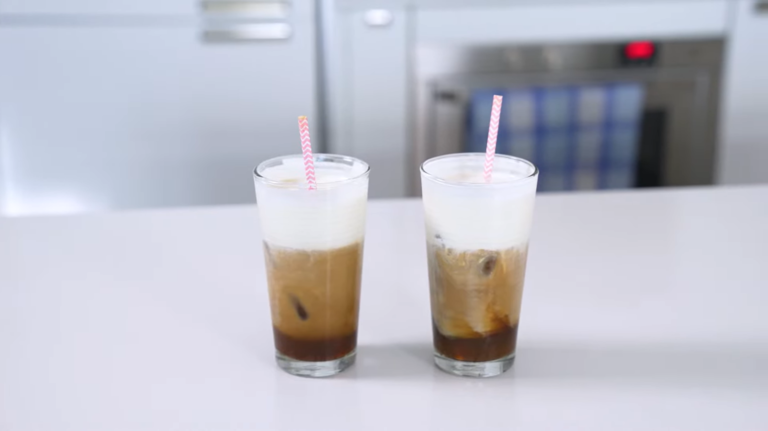Is Ice Cream Good For Sore Throat? Treating Quickly
Embarking on the quest for relief during the discomfort of a sore throat, many of us have encountered the age-old question: Is ice cream good for sore throat? This seemingly simple inquiry opens the door to a fascinating exploration of traditional remedies, modern medical advice, and the soothing properties of our favorite frozen treat. In this article, we delve into the heart of this topic, combining scientific research with practical advice to offer you a comprehensive understanding of how ice cream might affect sore throat symptoms. We’ll examine the evidence, debunk myths, and provide insights from healthcare professionals to ensure you’re equipped with reliable information. Whether you’re seeking immediate relief or curious about the effects of ice cream on your health, our expertly crafted insights promise to not only enlighten but also intrigue, inviting you to discover the cold truth behind ice cream’s impact on a sore throat. Join us on this creamy journey, as we scoop through layers of information, serving up a blend of facts and advice that will empower you to make informed decisions about your health and well-being.
Contents
Learn About Sore Throat

Before exploring ice cream specifically, it helps to understand sore throats overall. A sore throat refers to pain, scratchiness or irritation in the throat. Sore throats often accompany viral infections like colds and the flu. But they can also result from allergies, strained vocal cords, dry air, smoking, and other causes. Not all sore throats stem from the same source or require the same response. Recognizing the cause and severity helps determine appropriate treatment.
Understanding the Basics
Sore throats typically arise from one of three culprits: viral infections, bacterial infections, or non-infectious issues. Viruses account for most sore throat cases. Colds, influenza, mono, measles, chickenpox, and croup can all trigger throat pain and inflammation. Bacteria like streptococcus also provoke sore throats in cases of bacterial tonsillitis, sinus infections, or strep throat. Less often, sore throats flare due to allergies, acid reflux, smoking, yelling, or thyroid problems rather than infections. Identifying the cause aids in choosing suitable remedies.
Viral sore throats accompanying colds or flu usually pass within a week. Strep throat requires antibiotics to cure bacterial infection. Non-infectious sore throats may persist without resolving underlying issues. Paying attention to associated symptoms provides clues to the source. Fever, body aches, cough, and fatigue suggest viral illness. Pus, redness, swollen lymph nodes, rash, and headache may indicate bacterial infection. Medical evaluation assists diagnosis when the cause remains uncertain.
Recognizing Serious Conditions
Most sore throats resolve without complications. Certain symptoms warrant urgent medical care to check for rare but serious conditions. Difficulty breathing or swallowing requires prompt evaluation to rule out epiglottitis or abscesses. Rash, fever, and sore throat can signal scarlet fever. Unusually severe pain may mean peritonsillar abscess. Neck stiffness, jaw discomfort or swelling alongside sore throat can indicate retropharyngeal abscess. When any signs of distress accompany sore throat, seek medical advice immediately. Don’t delay addressing symptoms that seem abnormal or extreme.
The Ice Cream Debate
Ice cream’s cold temperature provides temporary numbing relief from sore throat discomfort. But opinions diverge on whether the creamy treat actively helps or potentially exacerbates irritation. Reviewing the proposed benefits and drawbacks illuminates the advantages, disadvantages and uncertainties.
The Soothing Cold
Ice cream aficionados tout the cold dessert as a sore throat panacea. Applying anything icy to the throat diminishes nerve sensation, temporarily numbing discomfort. The same principle motivates drinking cold beverages or sucking on popsicles or throat lozenges to reduce sore throat pain. Ice cream’s texture also coats and lubricates the throat, providing protective buffering. The soft consistency requires less harsh swallowing than dry foods. This reduces friction and aggravation of tender tissues.
Additionally, milk ingredients may actively combat infection and promote healing. Milk contains vitamins, minerals, and proteins with anti-inflammatory and immune-boosting properties. Calcium, vitamin D, and zinc assist immune function. Protein provides amino acids for repairing damaged tissue. Purported anti-viral effects from lactoferrin protein require more research but show promise. For those embracing dairy, ice cream’s nutritional composition aids the body’s natural defenses.
Considering Ingredients and Flavors
Not all ice creams are created equal when it comes to sore throat relief potential. Ingredients and flavors modify the effectiveness equation. Active infection contraindicates dairy for some individuals. Added sugars may worsen throat irritation rather than reduce it. And large quantities of ice cream could overload an already taxed throat.
Dairy is the first consideration. Lactose intolerance precludes milk-based ice cream for some people. Non-dairy frozen desserts avoid this issue. But they also exclude the presumed therapeutic components of milk. Eggs used in certain ice creams also provoke allergies in sensitive people. Identifying and avoiding personal trigger ingredients is key.
Next, added sweeteners like sucrose, corn syrup, or artificial sweeteners may exacerbate throat pain rather than ease it. Sugary foods and fruit juices tend to amplify discomfort from throat inflammation. Opting for low or no-added-sugar items minimizes this effect.
Finally, overdoing portion size counteracts benefits. Extreme cold or large volumes mechanically stress the throat. Moderation optimizes any palliative effects. Spoonfuls rather than bowls full allow the cold to diminish pain without overwhelming the throat.
Dietary Considerations
Identifying aggravating and soothing foods provides a balanced game plan for relief. Certain foods combat inflammation and support healing. But others may worsen throat irritation. Assessing ingredients and tailoring choices to support recovery expedites feeling better.
Food allergies and intolerances necessitate care when selecting sore throat foods. Dairy, eggs, nuts, soy, and other common allergens provoke reactions in susceptible individuals. Sidestepping personal trigger foods prevents adding insult to injury.
Lactose intolerance makes dairy a problematic choice without enzyme supplements or lactose-free options. Non-dairy frozen desserts avoid this issue. Coconut milk, almond milk, and other plant-based varieties offer allergy-friendly cold relief. Checking labels ensures options align with dietary needs and restrictions.
Foods to Embrace or Avoid
Certain foods actively fight infection and reduce inflammation. Optimizing these healing choices speeds recovery. Other foods tend to aggravate sore, irritated throats. Avoiding what hurts facilitates feeling better faster.
Anti-inflammatory selections like honey, broths, aloe vera, and green tea deliver soothing components and hydration. Spices including turmeric, ginger, cayenne, and cinnamon contain compounds that combat pathogens and irritation. Garlic, onions, and mushrooms boost immune defenses against infection. Their mild flavors diminish throat discomfort. Incorporating more of these foods and spices aids the body’s efforts to resolve sore throat symptoms.
Conversely, many dietary additions worsen throat inflammation. Spicy, fried, acidic, and highly processed items like citrus, vinegar, pepper, soda, chips, and caffeine overstimulate already tender membranes. Alcohol irritates throat tissues and dehydrates for a one-two punch of aggravated discomfort. Refined sugars also amplify soreness. Simple modifications sidestep these pitfalls while still providing calories and satisfaction.
Beyond the Freezer
Ice cream is not the only option for sore throat relief. Exploring alternatives illuminates additional effective remedies. Hot teas, herbal solutions, popsicles, and temperature regulation all supply time-tested therapeutic interventions.
Hot vs Cold Remedies
Ice Cream exemplifies cold therapy for irritating sore throats. But scientifically speaking, evidence remains mixed on optimal temperature for relief. Limited studies give a slight edge to warm drinks over cold ones for pain. Heat improves blood flow to relax muscles and loosen secretions. One study did note stronger patient preference and perception of benefit from cold over hot beverages. Ultimately, finding individual comfort takes priority over strict adherence to one temperature.
This nuance explains traditional sore throat advice to sip warm broths, tea, or lemon water. Heat soothes throat tissues and steams sinus congestion. Hot liquids also avoid the potential drawbacks of extreme cold on irritated membranes. Alternating hot and cold drinks checks multiple boxes for relief. Customizing temperature to find individual comfort optimizes the therapeutic effects.
Herbal Remedies and Teas
Herbal teas offer both heat and plant compounds to pacify sore throat misery. Ingredients like slippery elm, licorice root, and marshmallow root coat throat tissues. Anti-inflammatory, antimicrobial spices like turmeric, cinnamon, and garlic also feature in remedial teas. Throat coat, Gypsy cold care, and Yogi throat comfort teas blend these soothing botanicals for fast relief. The only caveat is avoiding acidic additions like lemon that may sting. Otherwise, herbal blends leverage natural plant power to ease throat discomfort and speed healing.
Expert Insights and Pharmacological Treatments

Managing severe or persistent sore throat often requires professional medical advice. Doctors assess causes, provide guidance on remedies, and prescribe medication as needed. Understanding recommended treatments and when to seek medical care optimizes recovery.
Professional Perspectives
Doctors often recommend at-home remedies before resorting to prescription medication. Rest, hydration, saltwater or baking soda gargles, and ibuprofen provide simple first-line relief for viral ills. They advise against unnecessary antibiotics that stoke resistance. But bacterial infections do require antibiotics for cure rather than just symptom relief.
Other medical guidance includes avoiding irritants like smoke and pollutants. Doctors also endorse temporary dietary adjustments. Soft, cool foods are gentlest on inflamed throats. Popsicles, smoothies, ice cream, and chilled soups soothe discomfort. But doctors emphasize moderation over indulgence for actual symptom improvement.
Understanding Medications
Over-the-counter sprays, lozenges, and pain relievers supplement home remedies. Sprays like Chloraseptic numb the throat for quick but short-term relief. Lozenges slowly dissolve to coat and lubricate tissues. Acetaminophen eases pain and fever. Ibuprofen tackles inflammation. But these only diminish symptoms, not treat underlying causes.
Doctors reserve antibiotics for confirmed streptococcal or bacterial infection. Misusing antibiotics fosters resistance and side effects without benefit for viral ills. But bacterial throat infections do require prescription treatment. Using medication correctly maximizes benefits and avoids unneeded side effects or complications.
Holistic and Preventive Measures
Comprehensive sore throat recovery extends beyond the spoon and bottle. Environmental precautions, stress reduction, and preventive care support total wellness along with symptom relief. A multilayered approach optimizes healing.
Lifestyle and Environment
Environmental factors contribute to throat health. Dry indoor air, irritants, and pollution trigger and exacerbate sore throat. Using humidifiers adds needed moisture. Air purifiers filter allergens and contaminants. Avoiding smoke, chemicals, and secondhand exposures protects the throat from strain.
Stress also diminishes immunity and resilience. Making time to relax and recharge restores balance. Sufficient sleep, light exercise, and fun diversion revitalize energy for healing. Supportive healthy habits speed bouncing back from illness.
Comprehensive Preventive Strategies
Preventing sore throats from taking hold remains ideal. Combining smart lifestyle habits bolsters the immune system to sidestep pain and sickness. A nutritious whole food diet with plenty of fruits and vegetables provides essential vitamins and nutrients. Staying hydrated keeps mucous membranes moist. Hand hygiene limits viral spread from coughs or hand contact. Reducing exposure to irritants through masks or filtered air avoids overload and damage.
Beyond these daily measures, improving overall wellness through exercise, stress management, and moderating unhealthy habits like smoking or drinking equips the body to resist and rebound from illness. Layering healthy behaviors makes getting sick less likely while also shortening duration and severity when bugs do break through.
Special Considerations
Sore throats require extra care and precaution for vulnerable groups like children. Kids’ developing bodies handle infection and inflammation differently than adults. Unique risks require tailored management under medical guidance. Meanwhile, monitoring any sore throat for worsening helps prevent escalation to dangerous situations. Customizing care optimizes safe outcomes.
Children and Sore Throats
Special attention helps safeguard children from sore throat complications. Strep throat poses substantial risks to kids like fever, dehydration, and contagiousness. Expert guidelines advise prompt testing for strep to initiate antibiotics if positive. Parents should watch for signs of dehydration and ensure proper fluids. Rest and appropriate symptom relief help kids heal.
Lacking immunity, children are also prone to viral throat infections like croup, tonsillitis, and mononucleosis. These require monitoring and medical care as needed. But parents can provide gentle, kid-friendly symptom relief like smoothies, popsicles and cool soft foods. Expert input guides pediatric throat treatment for best outcomes.
Recovery and Monitoring
Vigilantly monitoring sore throat symptoms for the first few days ensures proper care. Typical viral cases improve within a week. But worsening pain, new fever, trouble breathing or swallowing all indicate potential complications requiring re-evaluation. Don’t hesitate to follow-up with a provider if symptoms persist or seem atypical.
Likewise, completing the full antibiotic course as prescribed is critical for bacterial infections like strep. Stopping early risks relapse or resistance. Follow all instructions and obtain re-testing to confirm cure. Throat cultures after treatment ensure the infection has fully resolved.
Conclusion
Sore throats universally inspire a quest for quick relief. While the logic of ice cream’s cold soothing properties holds intuitive appeal, legitimate questions remain about its effectiveness and safety. Used prudently, a spoonful of ice cream may provide temporary numbing and lubrication alongside other remedies under a doctor’s care. But dairy risks and excess sugar may also exacerbate rather than ease symptoms for some individuals. Alternative cold therapies, warm soothing drinks, protective foods and hydration, stress and environmental management, and medical therapies all contribute to genuine relief and recovery. An integrative approach optimizes healing by aligning evidence-based care, expert input, and individual factors. Finding the right balance of treatments and prevention ultimately empowers sore throat sufferers to get well with minimal discomfort and lasting results.
https://bamboowokmanvel.com/food-drink/cream/
Harmony Saunders is the CEO and founder of Bamboo Wok, a family-owned and operated Chinese restaurant that has been serving the Manvel, Rosharon, and Alvin communities for more than nine years. Our delicious dishes are made from scratch with the best ingredients, vegetables are fresh cut daily in our kitchen, and poultry is delivered every two days.
So whether you’re craving Chinese food for the family or need catering for your next event, please give us a try! We know you won’t be disappointed with our fresh, authentic Asian fare.








